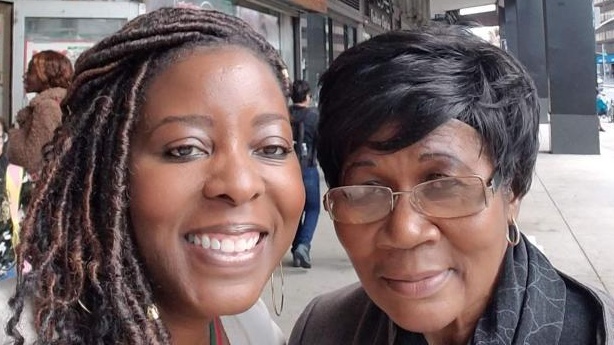As the coronavirus pandemic shook the United States at the beginning of 2020, officials began to desperately work on finding a vaccine.
As time passed, data spotlighted the vastly different effects on Black Americans. From economic burdens to rising coronavirus-related deaths and hospitalizations, the Black community was riddled by a lack of resources and aid from the government.
Developments in research saw the rollout of two vaccines— Pfizer and Moderna. Weeks later came a third vaccine— Johnson & Johnson. The latter of the vaccine in the U.S. was confirmed by officials to be effective in a clinical trial, completely preventing hospitalizations and death, The Washington Post reported.
However, the Johnson & Johnson vaccine was less effective, only 66%, in protecting Americans from moderate cases of the virus. The efficacy rate was significantly lower than the Pfizer and Moderna vaccines which promise an efficacy rate of more than 90%.
But just as quickly as the Johnson & Johnson vaccine was rolled out, it was taken off shelves due to what the CDC says was six reported cases of a rare but serious blood clot disorder.
The announcement from the CDC came just one day after Ayanna Floyd Davis said her mother-in-law passed away.
Ena Grant, 76, had received the Johnson & Johnson vaccine on April 7 and unexpectedly passed away in her apartment on April 12, just five days after being vaccinated against the virus.
Davis said her mother-in-law, a Brooklyn native who was an avid walker in the city, was in great health and was seen by her children the Sunday before she passed away. Despite receiving the vaccine at her doctor's office, Grant didn't complain of any side effects in the days following.
But when Grant's son, Herlitz Davis, couldn't get in contact with his mom on Monday he became concerned for her well-being.
It wasn't until Tuesday when he learned his mother had passed away fully dressed with her coat on and her umbrella by her side, ready to head out the door for an eye appointment.
Immediately, Grant's children pinpointed to the vaccine as a possible cause of death.
"What if it's killing people?" Ayanna said.
Once police arrived, the family was informed that the medical examiner's office would not be coming to take her body due to safety precautions implemented in response to the pandemic.
Ayanna said police then took pictures of her deceased mother-in-law and her medications to send off to the medical examiner who ruled her death "natural causes."
Infuriated, Ayanna said her family began to press the police and medical examiner's office for an autopsy, but to no avail.
Grant's daughter-in-law became increasingly concerned that the 76-year-old had passed away as a result of the vaccine, yet the medical examiner's office has since refused to perform an autopsy.
"It's a six people lie because they aren't even doing autopsies to confirm how these people are dying," Ayanna said of the reported cases by the CDC.
Davis added that the mistrust in healthcare within the Black community is amplified by the lack of transparency with what she identifies as an "underreporting" of side effects and deaths by the CDC.
Additionally, Ayanna cited the lawsuits against Johnson & Johnson for its use of talc in baby powder spikes her mistrust of the company.
The Insider reported that as of Jan. 3, the company was facing 25,000 lawsuits over its baby powder in the U.S. According to a 2018 Reuters article, for years, Johnson & Johnson was aware its baby powder contained asbestos, a human carcinogen.
Yet, it wasn't until May 2020 that the company finally decided to pull its talc-based baby powder.
Dr. Anthony Fauci, director of the National Institute of Allergy and Infectious Diseases and chief medical advisor to President Joe Biden, says he hopes officials "get back on track" with the vaccine.
He reaffirmed to Americans that the CDC's decision to pull the vaccine was "an indication that the CDC and the Food and Drug Administration take safety very seriously."
"The concern is that the longer you draw it out, the more there will be concern about not only that vaccine but it might even have an impact on vaccine hesitancy in general," he admitted.
Despite Fauci's wish to re-release the vaccine, the Black community remains hesitant, and even more concerned about the prevalence of the Johnson & Johnson vaccine in predominately low-income neighborhoods.
The decision to administer the vaccine in low-income and marginalized communities comes from the vaccine not requiring to be frozen or needing a booster shot, according to The Washington Post. But officials say the idea of dispersing a less effective vaccine could erode the already meek trust among Black Americans.
"If we end up with a hierarchy that says all rich white people get Pfizer, and all poor Black people get J&J, that would be a problem," Helene D. Gayle, president and chief executive of the Chicago Community Trust, admitted.
As many Black Americans continue to weigh whether to get vaccinated, Biden is pushing forward with his plan to increase the number of doses administered.
